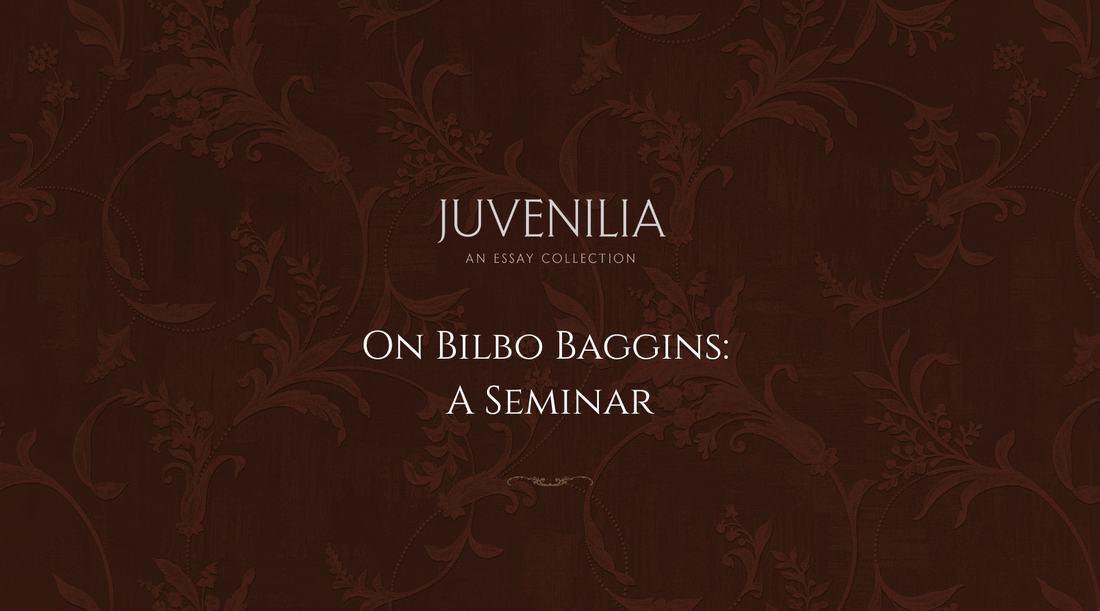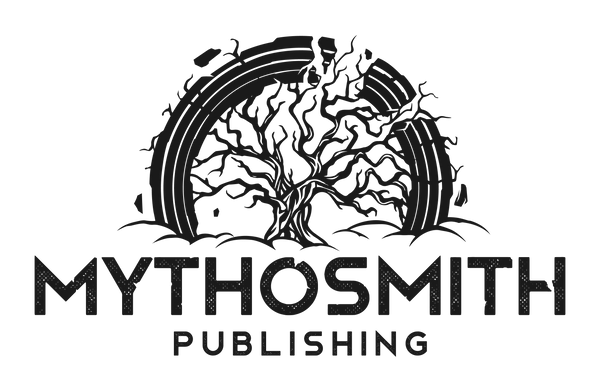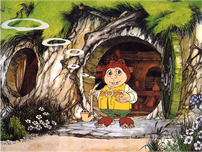
On Bilbo Baggins: A Seminar
At the beginning of The Hobbit, Bilbo Baggins is what I have dubbed “A Reluctant Companion”. His character development is fantastic, and I have divided my presentation into 2 parts to reflect Bilbo’s growth:
Part I: The Reluctant Companion
An Unexpected Party
Roast Mutton
Over Hill and Under Hill
Riddles in the Dark
Part II: The Hero Born
Flies and Spiders
Barrels Out of Bond
Inside Information
A Thief in the Night
Part I of my presentation will focus on Bilbo and his acclimatization towards ‘adventures’ from both a self-developmental standpoint as well as in shifting social dynamics. Part 1 shows a Bilbo that is slightly unfocused, unsure, and untried; he is not a blended part of the group and tends to be an outsider beyond species variation. Part II shows a Bilbo that believes in himself and his acquired abilities. He is confident, quick, courageous, bold, and demonstrates remarkable leadership qualities towards conflict resolution. Finale Bilbo is a far-cry from opening Bilbo:
“Sorry! I don’t want any adventures, thank you. Not today. Good morning! But please come to tea—any time you like! Why not tomorrow? Come tomorrow! Good-bye!”
~The Hobbit, pg. 2
Part I: The Reluctant Companion An Unexpected Party
“Gandalf sat at the head of the party with the thirteen dwarves all round: and Bilbo sat on a stool at the fireside, nibbling at a biscuit (his appetite quite taken away), and trying to look as if this was all perfectly ordinary and not in the least an adventure.” ~The Hobbit, pg. 26
Bilbo Baggins, a perfectly respectable hobbit, does not want to go on an adventure. He is perfectly comfortable in his cozy hobbit hole and does not wish to join Gandalf on a disruptive excursion. Expecting an old friend to swing by, imagine Bilbo’s surprise when his house becomes full of dwarves! They drink and eat and sing and recruit Bilbo’s services as ’The Burglar’ for a dangerous adventure. He wants to imagine the night was a bad, bad dream. Come morning, he quickly finds his reality all too real. Bilbo’s character at the beginning of the story is soft; his biggest problem is leaving his handkerchief at home. Even at dinner he is an outsider in his own home, but it is of his own doing. When he embraces his ‘Took’ side, not only does he belong, but he becomes the leader.
“‘I’m awfully sorry,’ said Bilbo, ‘but I have come without my hat, and I have left my pocket-handkerchief behind , and I haven’t got any money.”
~The Hobbit, pg. 38
Roast Mutton
“‘Now it’s the burglar’s turn,’ they said, meaning Bilbo. ‘You must go on and find out all about that light, and what it is for, and if all is perfectly safe and canny,’ said Thorin to the hobbit. ‘Now scuttle off and come back quick, if all is well. If not, come back as quick as you can!’”
~The Hobbit, pg. 40
Bilbo’s first heroic attempt does not go as planned. He is sent to scout ahead for the group. Things go awry. Bilbo is not a hero of physical prowess; instead, it’s his mind that is nimble and agile, and it gets him out of every situation he finds himself in. Things end up alright, but in this first attempt at proving himself, everyone gets caught, and Gandalf must come in and save the day to prevent the dwarves—and Bilbo—from becoming Troll fodder.
Over and Under Hill
“Out jumped the goblins, big goblins, great ugly-looking goblins, lots of goblins, before you could even say ‘rocks and blocks’. There were six to each dwarf, at least, and two even for Bilbo; and they were all grabbed and carried through the crack, before you could say ‘tinder and flint’.” ~The Hobbit, pg. 55
The next event where Bilbo is in danger is in the mountain with the goblins. It is the second attempt at hero-hood, and while it’s a more successful attempt than with the trolls, he gets separated from the group entirely. He is grabbed by the goblins, and in a disturbance, gets away. It was not a matter of taking initiative, but of relying on instincts and being on his own for the first time. It is a turning point where he must gather his courage for the final event in his reluctance arc: Gollum.
Riddles in the Dark
“‘Does it guess easy? It must have a competition with us, my preciouss! If precious asks, and it doesn’t answer, then we does what it wants, eh? We shows it the the way out, yes!’” ~The Hobbit, pg. 69
This event with Gollum is a turning point in Bilbo’s character arc for three reasons: self-confidence, power shifts, and acquisition of a magical item. Bilbo must rely on his own abilities of wit, steadiness, and trickery to outsmart his opponent. In addition, it is a turning point for several reasons: first and foremost, it is the chapter where he starts believing in himself and starts to demonstrate leadership; secondly, after these events, his companions begin to take Bilbo’s instincts and ideas seriously and start to treat him like not only an equal, but the leader, and finally, it is the chapter that he unlocks a newfound power: The Ring, which enables him to take on the harder tasks ahead.
Part II: The Hero Born
From this point on, it is no longer Thorin or Gandalf who is in charge, but Bilbo, for Gandalf leaves for other business and Thorin has tunnel vision. Bilbo has demonstrated a marked ability to get out of danger. He steps up to the plate from here on out not because of being told to do something (for the most part) but because he chooses to go himself; he takes on the responsibility of the group and gets everyone out of peril each time a problem arises. The entire story, the dwarves have said “at your service”, but not once do they actually demonstrate an ability to live up to their word.
“I have been told that dwarves are sometimes politer in word than in deed.”
~The Hobbit, pg. 200
Flies and Spiders
“The spider lay dead beside him, and his sword-blade was stained black. Somehow the killing of the spider, all alone by himself in the dark without the help of the wizard or the dwarves or of any one else, made a great difference to Mr. Baggins. He felt a different person, and much fiercer and bolder in spite of an empty stomach, as he wiped his sword on the grass and put it back into its sheath.”
~The Hobbit, pg.114
stout | staʊt |
adjective 1 (of a person) rather fat or of heavy build: stout middle-aged men.
2 (of an object) strong and thick: Billy had armed himself with a stout stick | stout walking boots.
3 having or showing courage and determination: he put up a stout defence in court.
Bilbo is both stout in stature and temperament, and in combination, it is an asset to be able to stand firm in the face of danger. To be able to defeat spiders of such a scale, and to help save everyone else already captured by said spiders is a remarkable victory and yet another testament to his ability to rise to the occasion when he is needed. This is the first attempt at physical bravery, which is very impressive, particularly given he’d never truly wielded a weapon before. Perhaps unlikely, but for the sake of the story, it is yet another reason why he is the hero. He pulls all the weight mentally, and when necessary, can defend himself (something Frodo in the Lord of the Rings could not really do, but that’s an aside and a half.) He’s well-rounded and versatile.
Barrels Out of Bond
“For some time Bilbo sat and thought about this water-gate, and wondered if it could be used for the escape of his friends, and at last he had the desperate beginnings of a plan.” ~The Hobbit, pg. 131
While Thorin and the rest of the dwarves were captured by the elves, Bilbo had his nifty ring to evade capture and detection. As a result, he was yet again in a unique position to be a leader to the group. Once more, Bilbo uses his wits to rescue the group and orchestrates a plan that allows the company to continue their journey. Not only does the plan get them out of prison, but it involves travel so efficient, they don’t have to move a muscle to get to safety. (And the dwarves still complain.)
*Of note: the seductive powers of the ring, while not explored much in this book outside of Gollum, show that it takes an extreme strength of character to possess the ring and not become corrupted by it. Had the dwarves been the owner of such a treasure, Middle Earth would have been in peril far sooner, and would have fallen particularly because Moria fell to the Goblins after the events of this book. That’s more of a Lord of the Rings aside, but for those that grew up with LOTR, that’s an important ramification to think about because had someone else fell down the shaft, the events could have had a disastrous ending whether because a dwarf grabbed it, or because Gollum was captured in FotR and would have had the ring on him to give to Sauron
Inside Information
‘Now it is the time for our esteemed Mr. Baggins, who has proved himself a good companion on our long road, and a hobbit full or courage and resource far exceeding his size, and if I may say so possessed of good luck far exceeding the usual allowance—now is the time for him to perform the service for which he was included in our Company; now is the time for him to earn his Reward.” ~The Hobbit, pg. 153
The patience Bilbo has with the dwarves is so impressive. Despite Thorin’s demand that Bilbo fulfills his end of the bargain, despite the entire quest resting on Bilbo’s shoulders to begin with, Bilbo not only doesn’t argue, but chooses to go of his own volition. He converses with the dragon with brilliant flattery, as one does with a majestic, fire-breathing dragon, and remains unscathed doing so. He manages to steal a cup, converse with the dragon, and has keen instincts that saves the group’s lives once again, feeling unsettled by the dragon’s silence. Had anyone else been in charge, they’d have died many times over, but Bilbo sees the big picture of the quest and actually curbs the group from destruction through wanting a peaceful resolution to boot. Which brings us to...
A Thief in the Night
“'My dear Bard!’ squeaked Bilbo, ‘Don’t be so hasty! I’ve never met such suspicious folk! I am merely trying to avoid trouble for all concerned. Now I will make you an offer!’” ~The Hobbit, pg. 193
Chapter XVI seems to be the final turning point in Bilbo’s hero journey. Before, he had most of the qualities already required for being a hero, but by showing up to the ‘enemy camp’ to find a peaceful resolution shows a certain maturity in him that others in his companionship severely lack, proving the final piece: a true leader knows when to pick his battles. He is willing to compromise, is willing to set aside his own portion of spoils for the sake of human decency, of fairness, and to facilitate co-existence. His hobbit nature comes full circle by this point, where on his journey, he strayed from his roots to become something more, but in the end, returns to his true values and does not allow his experiences to change him in a detrimental way.
“Gandalf looked at him. ‘My dear Bilbo!’ he said. ‘Something is the matter with you! You are not the hobbit that you were.”
~The Hobbit, pg. 218
In Conclusion, Bilbo Baggins, when he returns to his cozy, hobbit hole, is a changed hobbit... which is unacceptable to the other hobbits. He gained confidence, courage, and a greater perspective – one that no longer fits with the worldview of his peers, and as such, loses his reputation as a ‘respectable hobbit’. Once again, he becomes an outsider of sorts in his own home, an echo from chapter I where he is an outsider among the dwarves, but, this time, he is comfortable in his skin – in being himself and goes on living in peace and quiet solitude, warmed by his fire and with time to make a record of his adventures in a book he has time to write, another echo where the entire book comes full circle by his having written it.
'No!’ said Thorin. ‘There is more in you of good than you know, child of the kindly West. Some courage and some wisdom, blended in measure. If more men valued food and cheer and song above hoarded gold, it would be a merrier world.” ~The Hobbit, pg. 210
[WORKS CITED]
“Stout.” Merriam-Webster.com Dictionary, Merriam-Webster, https://www.merriamwebster.com/dictionary/stout. Accessed 31 Oct. 2021.
Tolkien, J. R. R. The Hobbit or There and Back Again. First Methuen Edition ed., Methuen Publications, 1977. Illustrations copyright 1977 RANKIN/BASS PRODUCTIONS, INC., New York.

